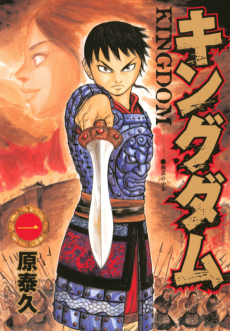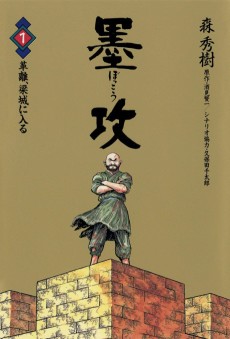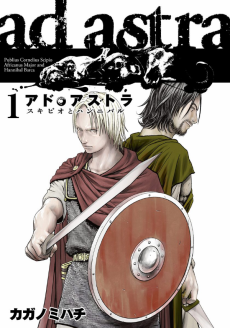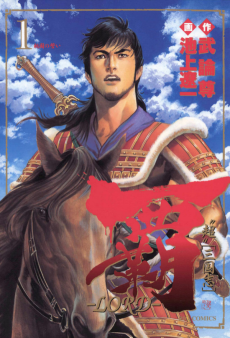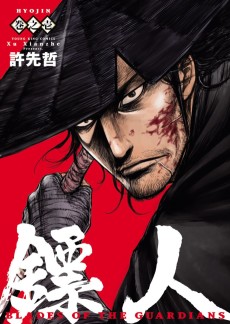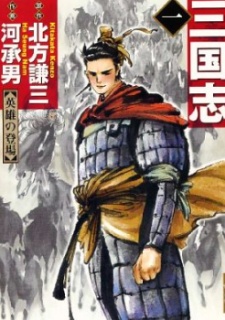HUO FENG LIAO YUAN
STATUS
RELEASING
VOLUMES
Not Available
RELEASE
Invalid Date
CHAPTERS
Not Available
DESCRIPTION
Nearly 2000 years ago, the prosperous Han dynasty of China collapsed. Heroes rose and fell, and three nations emerged--Wei, Shu, and Wu. Historians refer to this period as the Three Kingdoms period. The romance of the three kingdoms is an intriguing tale of heroic deeds, of alliance forged and broken, of loyalty and betrayal.
Hong Kong artist Chan Mou retells this classic tale in "The Ravages of Time" from the perspective of the Sima clan, which in the end united the three kingdoms. Readers will be attracted by an array of well-developed characters and Chan Mou's own unique top-notch art-style.
CAST
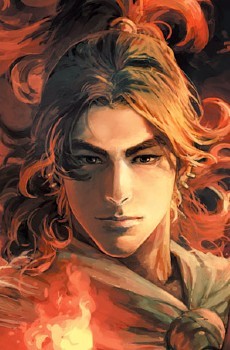
Huo Liaoyuan
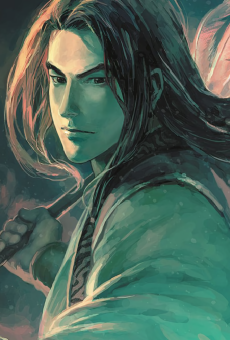
Yi Sima
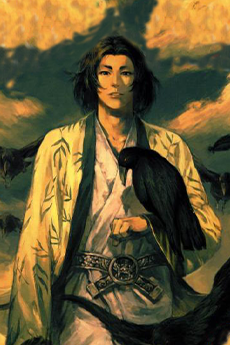
Jia Guo
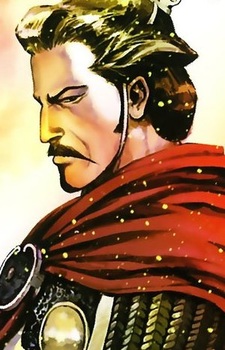
Cao Cao
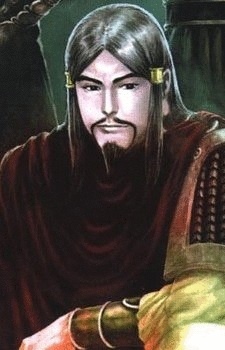
Bei Liu
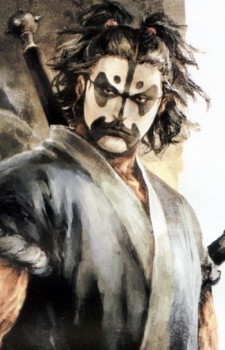
Fei Zhang

Yu Zhou
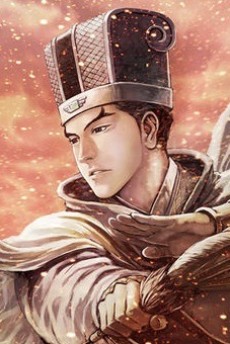
Liang Zhuge
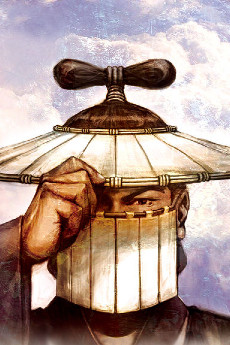
The Eighth Genius
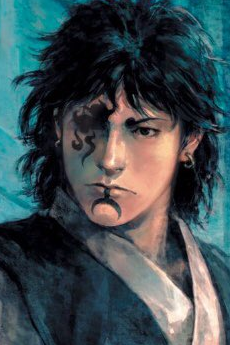
Tong Pang
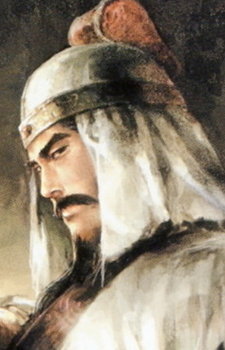
Yu Guan
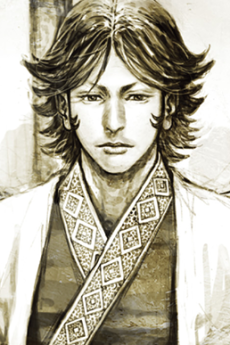
Quan Sun
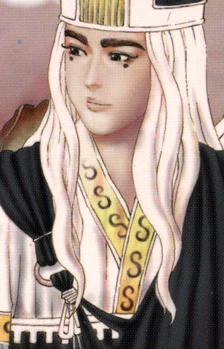
Yu Xun
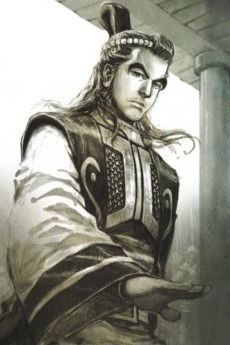
Xu Jia
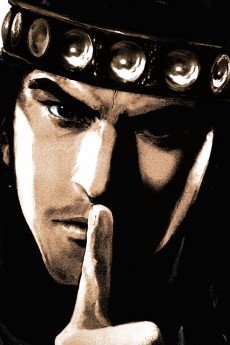
Bu Lü
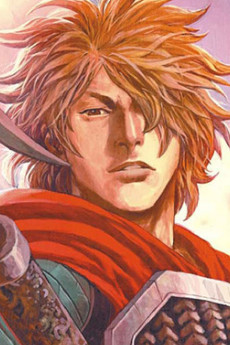
Ce Sun

Meng Xiao
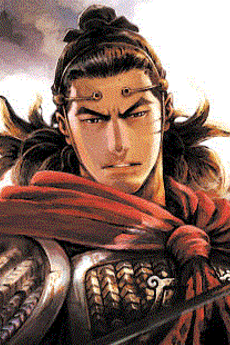
Liao Zhang
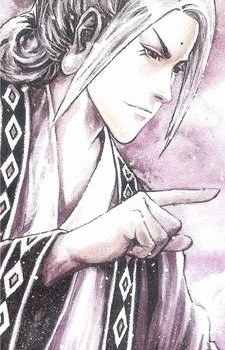
Fang Yuan
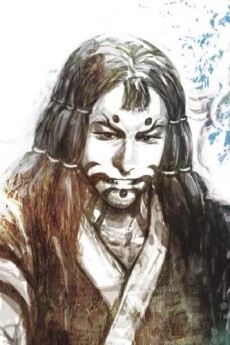
Chao Ma
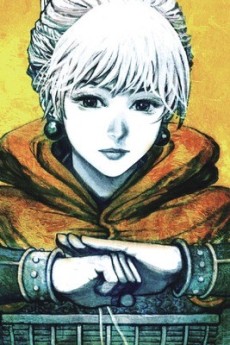
Shu Sun
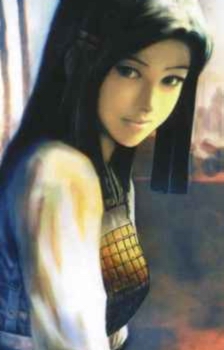
Wu Ling Shan
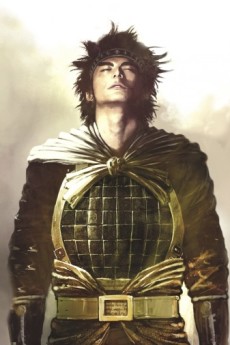
Ci Taishi
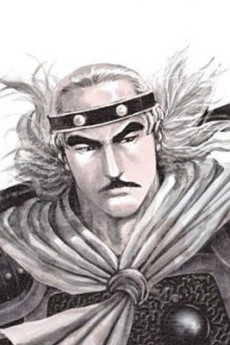
Shun Gao
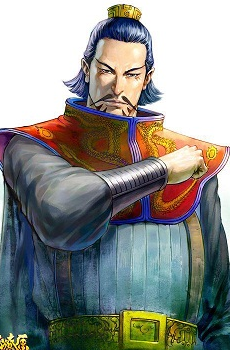
Shao Yuan
CHAPTERS
RELATED TO HUO FENG LIAO YUAN
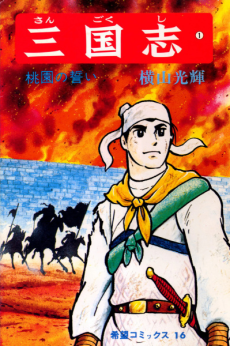 MANGA ActionSangokushi
MANGA ActionSangokushi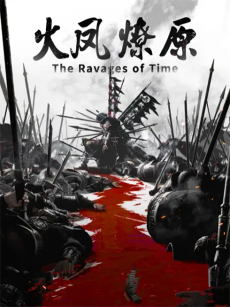 ONA ActionHuo Feng Liao Yuan
ONA ActionHuo Feng Liao YuanREVIEWS

MitakaFami
100/100Life is spectacular yet gloomy, and rife with inconstancy.Continue on AniListTL;DR version - This is a very well-rounded story, exploring the themes of pretense (with both lying to others and lying to oneself), politics (through deception and schemes), war (through nihilism and manipulation), literature (through the importance of sharing and the fabrication of history) and so on. Story does not center around anyone, instead it is fleshing out every side, who represent different types of opposing ideologies. Characters are exploding with charisma, by showing off their immense strength and knowledge of Art of War (thus being the most complex work in fiction at scheming). It is both very tragic and poetic, with various obscure references and detailed artstyle. Everything above, in addition of rich social-commentaries, has a really high chance of becoming your one of the favourite stories in fiction, so don’t miss the chance.
Ravages of Time offers many hardships to its newcomers and they will notice them as soon as they will start reading the story, so here let’s just focus on the rewarding part of it, as it is arguable that Ravages is the highest reward one may achieve, by reading comics. Besides, community is willing to make newcomer's experience much easier and smoother.
The first things first - RoT does not have a classic narrative, in a sense, that it is not only will not focus solely on the main squad, but also it will not care if you won't side with protagonists who do not care about heroism and/or do bad things.
Now we can start talking about the many reasons of why you may love to read it.
The most obvious one are the action scenes. They tend to be highly energetic, with various stunts involved, both down-to-earth and over-the-top, with different number of participants. There is hardly any instance (if at all) of mere slashes that are supposed to create hype in an artificial way. They also are neither meaningless nor repetitive(if it is supposed to be a parallel, for example). What makes these scenes even more charming? Characters often are equal and they tend to praise each other as well as to have a very interesting dialogue (yeah, character interactions are hardly ever shallow, even when they are preparing to punch each other out). Only problem one may have is the skipping of some battle scenes.
Said scenes are empowered by very flamboyant artstyle. Starting from various stylish and fashionable character designs (not only for main characters, but also over 500 unnamed background, a subtle addition to its realistic depth of world-building) and their poses, to high-scale set-pieces, to detailed decorations and very memorable and poetic pages. Style is fine from the get-go, but visibility of areas not so much. Eventually, that also gets much better, while style gets more and more mature, as author is coming out of his heavy metal phase. I would say, driving less emotions in the later parts of the story is one of the two weaknesses it has. The second being the lack of sense of space.
Another prominent trait are the schemes, which are probably the most complex/convoluted that you have ever seen, as they cover many different things, from morale boosting duels to social rumors, and mixes them together. Then makes them even harder, when such tricks are being used by more than one side, while they are busy covering every possible outcome of their moves and finding common ground. They may change tides, or even schemers themselves may change sides. Even the deceptive moves taken off-screen are more complex than “smart” gimmicks of most of the other stories. (to add something provocative, as extra flavor - LOGH is child's play compared to RoT)
From hereon we have to dig deeper, as everything may be a part of in-depth thematic exploration.
You will meet various references to Art of War and similar works, which are obscure enough for us to constantly feel fresh. Another great thing about this is that - they are not mere references. They are implemented into the setting to serve as an explanation and social-commentary as well - the world is in a never ending cycle of corruption and it gets more and more cynical as it goes on, while sharing all-new experiences to others leads to even more battles. Some are getting so deceptive, that they use that “sharing all-new experiences” itself for their own deceptions.
But it is up to a person how will s/he use the knowledge. Thus, the central theme of this work is “Self-Interest vs. Righteousness”, with a very interesting take - no one is entirely on one side of the spectrum. Yeah, there are people who want to rule the world out of their greedy nature, but they will surely justify themselves by the greater good (for example, corruption of sage, horrors of war’s longevity and etc) and will try to maintain their image. Yeah, some people fight for the sake of righteousness, but their actions will also be really questionable by the standards of morality, they will also face the negative consequences and they also fight to live in a safe house for themselves.
Talking about consequences - they will be many, as arcs are made out of their chain reactions (but you can still differentiate them) and they are also many and sometimes too severe. That connects to both the horrors of war and the meaninglessness of people’s struggles (no matter how great they think they are) when they are confronted with the inevitability of history. Author believes that if a man goes to a war, he can’t be a good man. So, this ideology will make sure that such closures (with great poetic flavor to them) won’t ever feel undeserved or/and unsatisfying or/and not dramatic enough (except, of course, if death scene’s point is to not feel dramatic)
And if a writer believes in such a thing, that means he has some kind of disdain towards any of the characters which play somewhat important role in story, so you can expect pretty solid balance between conflicted sides. Even better - there are more than two sides and all of them have their own agendas. EVEN BETTER - on one side you will meet several people that have their own agendas and they affect each other (by manipulating their brothers, for example), just like it would have been in real life. Having this is really valuable and that is because it won’t feel like a piece of propaganda at all and you will be able to cheer or dislike any side you prefer (I like them all personally), without having just one moral compass.
Well, it does have a good amount of action scenes with unbelievable feats (which serve their own purpose and let’s talk about it later on) and some over-the-top sense of humor in the first arc, but aside of that, it remains one of the most mature works in fiction. For comparison we can take Berserk (which is a seinen, but has high amount of senseless violence just because and even rape may seem as a joke. Being close to the old tales of brother Grimms with its edge) and Kingdom (which is a shounen, but still has more naked breasts in its first arcs, than RoT as a whole (zero)). It does not even have much romance (only one is proper one and amazing at it), despite telling you that lust is in man’s nature (because everyone knows that lust can be used for schemes) and it never romanticizes love.
There is also a risk of becoming dry, when story has so much maturity, but RoT is handling that greatly as well, by having one of the most emotional scenes in fiction. Characters never forget that they should have emotions and act like human beings and they even have eccentric poses to them. In the latest arcs, it does get quite dry, but then again, it is still fully self-aware, as it touches about the themes of getting used to tragedy and thinking about the big picture, by trying to not let oneself to lose control because of personal stuff.
Now, as promised, we can talk about the feats. Sure, they are unbelievable, but its self-aware, judging by the people who say the same. I think, it is also a deconstruction of Dynasty Warriors (and other similar stories), because, yeah, characters are really powerful, but they are always a tiny part of grander decisions and anything is hardly ever solved by them. The strongest warrior even attracted many enemies out of his inhumanity and at the end, he still managed to become human. It has several more purposes, but I will leave them out for you to think about them by yourself. Who does not like heroic tales, after all?
Full focus is on warfare and politics, so it basically never feels like you are reading some boring slice of life where nothing ever happens, so ride is ever-eventful. I would consider this as a very important aspect, because crafting such a rich world requires big amount of focus and that usually will really slow down the story, but RoT manages to have importance in its every arc. Realistic march of time also helps with that - after 500 chapters, it covered around 20 years of its period and it that period of time, for example, characters already have children and not only some of them fight alongside their fathers (Unlike other stories where they milk with next generation, after every major conflict was resolved), but it also explores problematic part of inheritance.
History itself is also being explored in a historical manga (which is usually forgotten by other historical stories) and in an unconventional way - by changing details, while being fully self-aware and stating that it is more plausible this way, than actual history (aka fabrication of history), but not changing much of the general picture and major events of actual historical sources. For example, there is a completely fictional character named Yuan Fang and there is also Lu Bu, who was also made smart, to question history - is it really possible for people who are defined by physical prowess alone to have so much influence on a country? Why would people follow them? And so on. It may be also discussed that it is criticizing the original novels.
In conclusion, that’s a bit of what may be talked about The Ravages of Time, but hopefully, I wrote enough novelties of it to peak interest in people.

AlexSonicfun2012
100/100A Chinese Masterpiece In The MakingContinue on AniList
Introduction
As someone who has read a wide array of comic books from across the globe — including American superheroes, Japanese manga, Korean manhwa and Franco-Belgian bandes dessinées — I can confidently say that The Ravages of Time (《火鳳燎原》) is unlike anything I’ve encountered before. Despite my limited background in Chinese history — particularly the Han Dynasty or the Warring States period — and only having experienced Romance of the Three Kingdoms through Koei Tecmo’s Dynasty Warriors and Warriors Orochi games, John Woo’s epic film Red Cliff, a few episodes of the 2010 Chinese drama, and the manga Kingdom — this manhua became my first deep, serious dive into the Three Kingdoms world. It is also only the third manhua I have read, and yet, despite being ongoing, it may already rank among my favorite comics of all time.
In fact, I dare say it rivals — and in some respects even surpasses — titans of the seinen manga world like Berserk, Vagabond, and Vinland Saga. This isn’t hyperbole. It’s the result of the manhua’s uncompromising complexity, narrative richness, and artistic ambition. Let’s begin.
The Creator – Chan Mou (陳某)
The man behind The Ravages of Time is Chan Mou — a pen name meaning “Mister Chan” — a title both modest and deliberately indistinct. Before turning to manhua, Chan Mou worked in commercial advertising as a graphic designer, with experience in top-level campaign design for TV and print media. Despite his commercial success, he found the industry creatively stifling and eventually shifted his energies toward storytelling.
In interviews and the first volume of Ravages, he expressed dissatisfaction with mainstream comics, which he found lacking in depth and intellectual engagement. Inspired by his love of sci-fi, cartoons, and the visual arts, he created his debut independent comic Unhuman before eventually developing The Ravages of Time. His storytelling philosophy reflects a blend of Chinese fable, historical inquiry, and political critique.
Chan Mou has famously said, “True history does not exist. It is written by those who conquer,” a viewpoint deeply rooted in Chinese historiographical skepticism. This echoes the Confucian and later Legalist view that history is shaped by power rather than truth — a theme that permeates the manhua.
Today, The Ravages of Time is serialized in Hong Kong, Taiwan, and Japan, and published in Mainland China, Korea, Thailand, Vietnam, and Singapore — a rare achievement for a Hong Kong manhua.
The Manhua – Ravages of Time (《火鳳燎原》)
Based loosely on the 14th-century novel Romance of the Three Kingdoms (三國演義), Chan Mou reimagines familiar characters such as Liu Bei, Cao Cao, Sun Quan, and Zhuge Liang from the perspective of two fictional protagonists: Feng and Liaoyuan Huo. These names form the Chinese title of the manhua, which roughly translates to “The Fire Phoenix Rages Across the Plains.”
Central to the story is Sima Yi, depicted here not simply as a historical tactician but as a young mastermind at the helm of the powerful merchant Sima clan. Backed by a secretive force of elite assassins known as the “Handicapped Warriors” (殘兵), Sima Yi maneuvers from the shadows, leveraging both economic and political power — a clear metaphor for the unseen hands of influence in any age.
What sets Ravages apart is its willingness to blend creative license with historical framework, much like how Shakespeare altered British history to suit dramatic purposes. The result is not a distortion but an elevation — a philosophical reinterpretation rather than a mere retelling. While key events like major battles remain recognizable, character motives, relationships, and psychological dimensions are masterfully reconstructed.
The only critique I can muster — and even this is a minor one — is that the beginning may be overwhelming to newcomers unfamiliar with the Three Kingdoms. The pace is brisk and dense with political intrigue, but for those who persist, the reward is immeasurable.
The Characters
The character work is profound. No one is wholly good or evil; everyone is navigating survival in an era of upheaval. The line between loyalty and betrayal, idealism and pragmatism, is blurred. Even secondary characters receive meaningful arcs and moments of brilliance. These are morally ambiguous figures that compel introspection — echoing the Daoist view that order and chaos, light and dark, are in constant flux.
There is no standout favorite for me — every character is memorable. Some inspire awe, others provoke moral discomfort. But all of them feel deeply human.
The Art
To say the art is “phenomenal” feels like an understatement. The paneling, the draftsmanship, the sheer intricacy — all of it reaches near-transcendental levels. Characters are rendered with distinctive, often unconventional designs: Zhang Fei wears opera-like face paint; Zhao Yun is an emotionless assassin; Liu Bei resembles a serene messiah figure. This is not just creative flair — it is a visual expression of character psychology.
Landscapes, naval battles, siege engines, and ancient cities are illustrated with almost sacred reverence. At times, the art evokes the sweeping cinematography of Zhang Yimou or Ang Lee. You could frame certain pages and hang them in a gallery.
Combat is brutal, unglamorous, and grounded. The fluidity of action, combined with rhythm and pacing, makes every clash feel meaningful and grounded — not unlike a masterclass in wuxia storytelling.
Themes and Philosophy
Ravages is dense with recurring themes that are both historical and philosophical in nature:
Military Doctrine & Strategy: Each arc integrates real military thought, often treating doctrines as volume-wide themes. It’s reminiscent of Sun Tzu’s Art of War or the ancient text Six Secret Teachings.
Morale: Sima Hui’s fictional Discourse on Morale outlines how leaders can maintain cohesion through rhetoric — a striking reflection of Legalist statecraft.Assassination and Deception: In the tradition of Zhan Guo Ce (Strategies of the Warring States), the use of spies, body doubles, and feints are normalized. Death itself becomes a tool of influence.
Ethics and Governance: The manhua repeatedly asks — is it better to end war through cruel means or preserve righteousness at the cost of prolonged suffering? This mirrors the Confucian-Mohist debate on utilitarianism vs. moral virtue.
History as Narrative: "History is written by the victors" is not a modern cynicism but a historical reality. Chan Mou confronts this directly, with characters like Liu Bei and Zhang Fei openly acknowledging their likely misrepresentation in future records.
A quote from a cultured individual whom I know summarizes this sentiment perfectly:
“History is like a little girl dressed up by others.” — Z.H., circa 2025
Historical Accuracy
There’s no doubt Ravages of Time is historical fiction — and not a documentary. But that's the point. Like Braveheart or 300, this manhua takes inspiration from recorded events and infuses them with emotional and dramatic realism. In Chinese, there's a saying:
"以史为鉴,可以知兴替" — "Use history as a mirror, and you will understand the rise and fall [of states]."But Ravages dares to ask: what if the mirror is already distorted?
Historical purists might critique inaccuracies, but fiction's purpose is not to reproduce history — it is to interpret it. In this regard, Chan Mou excels.
Ravages of Time vs. Kingdom
It’s worth setting aside a dedicated section to compare two works that, on the surface, share a common thread: Kingdom, a Japanese manga, and The Ravages of Time, a Chinese manhua. Both are set during formative periods in ancient Chinese history and use the backdrop of war and political unrest to tell their stories. However, that’s where the similarities end. These two works approach storytelling, historical interpretation, and narrative purpose in vastly different ways.
Kingdom
Kingdom, created by Yasuhisa Hara in 2006, is set during the Warring States period and follows the rise of Xin, a war orphan who aspires to become a “Great General of the Heavens.” The manga chronicles Xin’s journey as he aids King Ying Zheng (later Qin Shi Huang) in his campaign to unify China. The premise holds enormous potential: it’s an era full of strategic genius, brutal warfare, and complex politics.
Unfortunately, Kingdom handles this rich historical canvas in a manner that feels superficial and stylized rather than grounded or reflective. Hara writes as though he is a casual enthusiast of Chinese history — someone more interested in its aesthetics than its substance. The manga dresses itself in the garb of a mature seinen, but its narrative foundation is pure shonen: loud, action-heavy, and emotionally simplistic. Strategy is largely absent or oversimplified, with rare exceptions — such as the clever use of poison in Chapter 737 — which only underscore how little the manga otherwise engages with the tactical depth its setting offers.
Instead of delving into military theory or the moral ambiguity of war, Kingdom focuses almost entirely on extended battle sequences, many of which drag on for dozens of chapters with minimal strategic evolution. The designs of its characters, often exaggerated to the point of parody, do little to evoke the historical realism the subject deserves. At times, reading Kingdom feels less like exploring the Warring States and more like flipping through a long-running, unofficial Dynasty Warriors fan comic — but without the interactivity or even the fun. You don’t come away from it with a better understanding of the era, just a stylized spectacle.
The Ravages of Time
By contrast, The Ravages of Time is superior in nearly every respect. Written and illustrated by Chan Mou, a native of Hong Kong, the manhua is a deeply intellectual, multifaceted retelling of the Three Kingdoms period. While it takes artistic liberties, it does so with respect and understanding of its historical and philosophical roots. Chan Mou is not interested in merely retelling the Romance of the Three Kingdoms — he is reinterpreting it through a modern, psychological, and political lens.
The depth of the manhua lies in its integration of Chinese philosophy, from the writings of Confucius and Mencius to Sun Tzu’s Art of War, which becomes central to the later arcs. Characters write their own military treatises, factions play multi-dimensional mind games, and readers are constantly challenged to re-evaluate their understanding of loyalty, heroism, and morality. Ravages doesn’t glorify war — it dissects it.
What sets it apart is not only its tactical brilliance, but its educational value. Through its narrative, readers learn about the Han Dynasty's political structures, social hierarchies, the role of eunuchs, the concept of “Handicapped Warriors,” and the ways ideology and power intersect. The artwork supports this tone: realistic, expressive, and often striking in its compositional symmetry, yet never afraid to push the aesthetic when necessary.
In short, The Ravages of Time is more than a historical comic — it is political literature. It respects the intelligence of its audience and enriches their understanding with every chapter. It invites reflection, not just reaction.
Final Thoughts
Reading The Ravages of Time is not simply an entertainment experience — it is an initiation. It draws you into a labyrinth of motives, principles, betrayals, and ideologies. It asks you to question what history means, whether justice can exist in a system ruled by pragmatism, and whether greatness is a myth built atop countless graves.
At its core, the manhua embodies a deeply Chinese view of history: not as linear progress, but as cyclical turbulence, where power shifts but human nature stays constant. Dynasties rise and fall. Heroes are lionized or demonized. Truth is subjective. And yet, even in this chaos, there are moments of transcendent loyalty, impossible beauty, and genuine sacrifice.
Chan Mou doesn’t just retell the Three Kingdoms — he rewrites the DNA of the epic, transforming it into something that is at once foreign and eerily familiar. It may not be for everyone — especially those who crave easy catharsis or clearly defined morality — but for those willing to enter its world, The Ravages of Time is not merely a manhua. It is a mirror, a challenge, and perhaps even a scripture for the politically haunted.
As the saying goes:
“乱世出英雄” — “In troubled times, heroes are born.”But Ravages makes us wonder:
What if troubled times only create survivors?
SIMILAR MANGAS YOU MAY LIKE
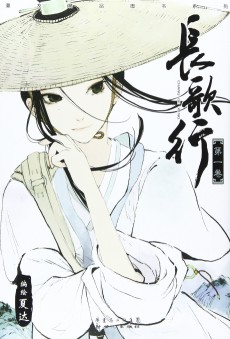 MANGA ActionChang Ge Xing
MANGA ActionChang Ge Xing MANGA ActionBlood and Steel
MANGA ActionBlood and Steel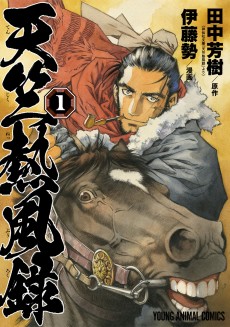 MANGA ActionTenjiku Neppuuroku
MANGA ActionTenjiku Neppuuroku MANGA ActionVinland Saga
MANGA ActionVinland Saga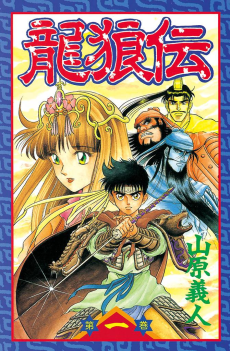 MANGA ActionRyuurouden
MANGA ActionRyuurouden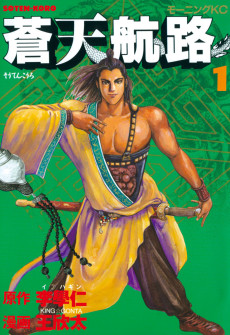 MANGA ActionSouten Kouro
MANGA ActionSouten Kouro
SCORE
- (4.05/5)
MORE INFO
Favorited by 369 Users

